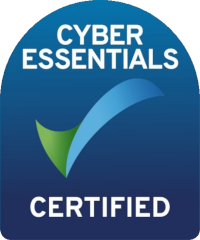In today’s fast-paced digital world, where users expect seamless and efficient experiences, slow software can have significant financial implications for companies. The consequences of sluggish software performance extend far beyond mere inconvenience, affecting a company’s bottom line in various ways. This article explores the financial costs associated with slow software, including lost customers, reduced productivity, and potential brand damage due to poor user experiences.
Lost Customers and Revenue
Slow software is a major deterrent for users who demand quick and efficient solutions. When applications or websites take too long to load, users are likely to abandon them in search of faster alternatives. Studies have shown that even a one-second delay in page load time can result in a 7% reduction in conversions. For e-commerce businesses, this can translate into substantial revenue losses.
Moreover, the cost of acquiring new customers is typically higher than retaining existing ones. When users leave due to poor performance, companies not only lose potential sales but also incur additional marketing and acquisition costs to replace those customers. This cycle of loss and replacement can have a profound impact on profitability.
Reduced Productivity
Slow software affects not only external customers but also internal operations. Employees rely on efficient software to perform their tasks effectively. When software lags, it hampers productivity, leading to longer task completion times and increased frustration among staff. This slowdown can cause project delays, missed deadlines, and a decrease in overall operational efficiency.
The financial implications of reduced productivity are significant. Companies may need to invest in additional resources, such as hiring more staff or paying overtime, to compensate for lost time. Additionally, decreased employee satisfaction due to inefficient tools can lead to higher turnover rates, further increasing costs related to recruitment and training.
Brand Damage and Reputation
In the digital age, a company’s reputation is closely tied to its user experience. Slow software can tarnish a brand’s image, leading to negative perceptions among customers. Dissatisfied users are more likely to share their negative experiences online, resulting in damaging reviews and a potential loss of credibility.
Brand damage can have long-term financial consequences. Rebuilding trust and repairing a damaged reputation requires substantial investment in marketing and public relations efforts. Moreover, potential customers who encounter negative feedback may choose competitors, leading to further revenue loss.
Opportunity Costs
Beyond direct financial losses, slow software also incurs opportunity costs. Companies with sluggish software may miss out on market opportunities that arise from delivering new features or services quickly. Competitors with faster and more agile software solutions can capture market share and establish themselves as industry leaders, leaving slow-moving companies at a disadvantage.
Conclusion
The financial implications of slow software are far-reaching and can have a profound impact on a company’s bottom line. From lost customers and revenue to reduced productivity and brand damage, the costs associated with poor software performance are significant. To mitigate these effects, companies must prioritise software optimisation, invest in robust infrastructure, and focus on delivering seamless user experiences. By doing so, they can enhance customer satisfaction, improve operational efficiency, and safeguard their financial health in an increasingly competitive digital landscape.

